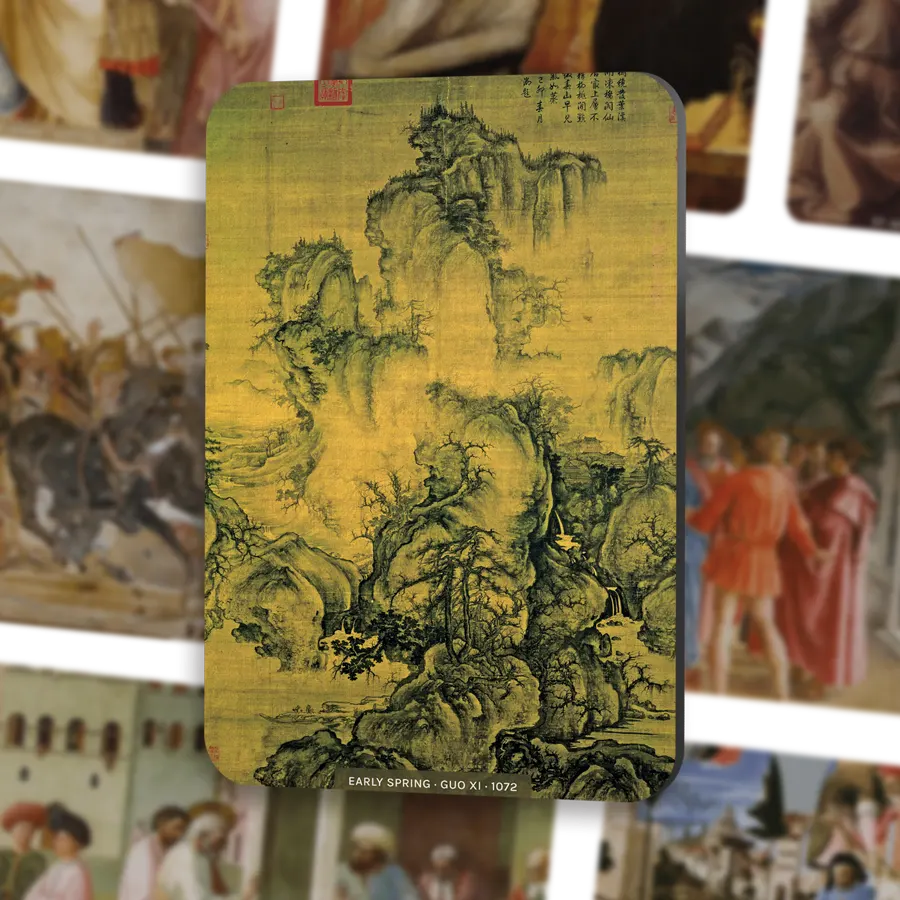History, as the study of the past, is essential to understand the world we live in today. It provides us with a better understanding of human behavior, societal structures, and the consequences of past actions. By learning from historical events and gaining knowledge of the past, we can make informed decisions and shape a better future.
How does history help us understand the world?
Developing a better understanding of the world
The study of history helps us develop a better understanding of the world around us. We can gain insight into their values, beliefs, and customs by exploring the history of different cultures, civilizations, and societies. This knowledge allows us to appreciate diverse perspectives and cultivate empathy toward others.
Studying past events and their impact on the world
Through the study of history, we can analyze past events and their impact on the world. By examining significant historical moments, such as wars, revolutions, and social movements, we can gain insights into the causes and effects of these events. This understanding enables us to learn from the past and make wiser decisions in the present.
Gaining knowledge of historical events
History provides us with a wealth of knowledge about past events. By learning about historical figures, significant battles, scientific discoveries, and cultural movements, we can deepen our understanding of the world's progress and development. This knowledge helps us appreciate the achievements and challenges faced by previous generations.
What can history teach us?
Learning from history to avoid repeating past mistakes
One of history's most important lessons is the opportunity to learn from past mistakes. By studying historical events and their outcomes, we can identify patterns and avoid repeating detrimental actions. History acts as a guide, allowing us to reflect on the consequences of certain decisions and make better choices for the future.
Understanding warning signs from history
History teaches us to recognize warning signs from the past. By studying similar circumstances and their outcomes, we can identify indicators of potential problems and take appropriate action. This understanding helps us navigate challenges more effectively and develop strategies to address them.
Developing good citizenship through knowledge of history
A thorough knowledge of history contributes to the development of good citizenship. By understanding past generations' struggles, achievements, and values, we gain a sense of responsibility toward our society and become more actively engaged in shaping its future. History teaches us the importance of participating in democratic processes, respecting diversity, and advocating for positive change.
Why is studying history important?
Pursuing a degree in history is highly valuable. A history degree equips students with critical thinking skills, research abilities, and a deep understanding of human experience throughout different periods. This degree opens doors to various career paths, including education, research, journalism, public service, and museum curation.
Studying history helps us uncover valuable lessons from the past. We gain insights into human behavior, conflicts, problem-solving strategies, and societal changes by examining historical narratives. These lessons provide us with a broader perspective on the complexities of the world and empower us to make informed decisions.
History plays a crucial role in shaping the present. It allows us to understand the historical context of current events, social issues, and political landscapes. By recognizing the interconnectedness of past and present, we can comprehend the factors influencing our world and work towards positive change.
How does history help us shape the future?
Using knowledge of history to make informed decisions
Knowledge of history enables us to make informed decisions. By analyzing the successes and failures of past actions, we can apply lessons learned to current challenges. This knowledge equips us with a broader perspective and better judgment, allowing us to shape a more favorable future.
Learning from historical successes and failures
History provides us with a treasure trove of both successes and failures. By studying the achievements and mistakes of previous generations, we can identify effective strategies and avoid repeating past errors. This knowledge helps us optimize our efforts and maximize our chances of success in the future.
Utilizing historical perspectives to plan for the future
Historical perspectives offer valuable insights for planning the future. By examining the long-term effects of actions taken in the past, we can anticipate potential outcomes and plan accordingly. This approach allows us to consider different scenarios, evaluate risks and benefits, and work towards building a more sustainable and prosperous future.
What did George Santayana mean by "Those who cannot remember the past are condemned to repeat it"?
Interpreting the significance of Santayana's famous quote
George Santayana's quote emphasizes the importance of remembering and learning from the past. It suggests that those who do not reflect on historical mistakes are likely to make them again. The quote serves as a reminder that historical knowledge is crucial for preventing the repetition of detrimental actions and ensuring progress.
Exploring the Consequences of forgetting history
Forgetting history can have dire consequences. Without an understanding of past events, societies, and individuals may fall into the same patterns of behavior that led to previous failures. Ignorance of history can hinder progress, perpetuate harmful practices, and limit personal and societal growth.
Understanding the importance of historical knowledge in preventing mistakes
Historical knowledge acts as a safeguard against repeating mistakes. By being aware of past errors, we can take measures to avoid them in the present. History provides us with valuable insights into the consequences of certain actions, allowing us to make informed choices that lead to positive outcomes.
Learn more about history through educational magnetic cards. Discover MUSÉEWALL collections.
Q: Are there any practical benefits to studying history?
A: Yes, studying history has practical benefits. By understanding history, we can become better citizens by being informed about our rights, responsibilities, and how our government operates. It also helps us develop empathy and understanding for others as we learn about the experiences and struggles of people from different time periods and cultures.
Q: Does history help us avoid repeating past mistakes?
A: History has shown that those who do not learn from it are doomed to repeat it. By studying history, we can identify patterns, recognize past mistakes, and work towards preventing them from happening again in the future. It allows us to learn from the experiences of those who came before us and make informed decisions to create a better future.
Q: Can history help us become better decision-makers?
A: Yes, history helps us become better decision-makers. By studying the successes and failures of the past, we can learn valuable lessons that can guide our decision-making in various aspects of life. Understanding history provides us with a broader perspective and enables us to make more informed choices based on evidence and past experiences.
Q: Is studying history only relevant in a school setting?
A: No, studying history is not only relevant in a school setting. While history is often taught in schools, its relevance extends beyond classroom walls. History is all around us, and learning from it can happen through various means, such as reading books, visiting historical sites, watching documentaries, or engaging in discussions with others who have knowledge and insights about the past.
Q: Can studying history help us become more empathetic?
A: Yes, studying history can help us become more empathetic. Learning about the experiences and struggles of people in the past can foster a sense of empathy and understanding. It allows us to appreciate the diversity of human experiences and develop compassion towards others, ultimately contributing to a more inclusive and compassionate society.




